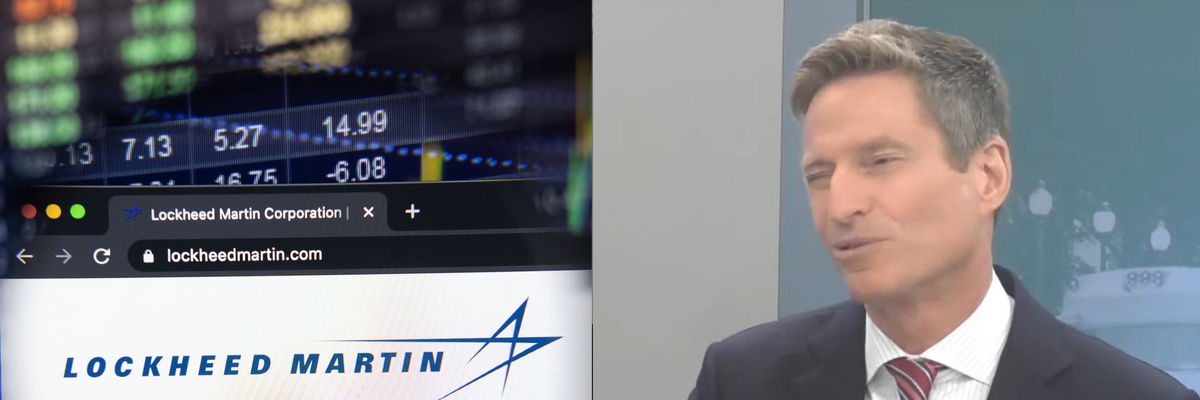The debt ceiling showdown appears to be on the verge of resolution, pending a vote in the Senate, with a deal between President Joe Biden and House Speaker Kevin McCarthy to suspend the debt ceiling in exchange for a cap on some federal spending. The deal would roughly freeze discretionary spending at current levels for the coming year. But one area of federal spending received a reprieve from Republican fiscal conservatives, the defense budget. The budget will receive a 3 percent increase in the coming year, in line with the White House’s $886 billion spending proposal.
Over half of the Pentagon’s spending goes to contractors and the CEO of the biggest weapons firm in the world, Lockheed Martin, is already taking a victory lap. Speaking at the Bernstein Annual Strategic Decisions Conference for investors, Lockheed head James Taiclet celebrated the defense budget hikes as a win for his company, telling the audience today:
"Now, there's been the political activity going on around the debt ceiling lately. Even with that, the current agreement on the table, it's not passed all the way through yet, the Senate's still got to address it, is 3 percent growth for two years in defense where other areas of the budget are being reduced. And I think, again, that's as good an outcome as our industry or our company could ask for at this point."
Lockheed Martin received 73 percent of its net sales from the U.S. government in 2022 and invested $13 million in lobbying the federal government. Their lobbyists heavily focus their efforts on the defense budget, according to OpenSecrets. And Taiclet, whose $24 million compensation consists largely of performance related bonuses, is already celebrating in anticipation of a Senate vote on a bill that will lock in growth of the defense budget and pad his bottom line while imposing austerity on other areas of federal spending.
















